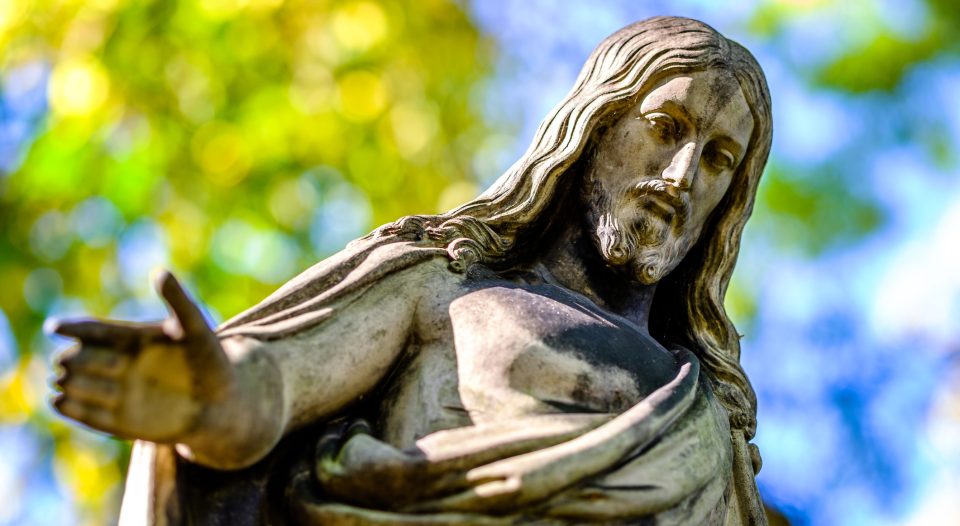Lectionary for Oct. 22, 2023
21st Sunday after Pentecost
Isaiah 45:1-7; Psalm 96:1-9;
1 Thessalonians 1:1-10; Matthew 22:15-22
This is revealing myself as an elder millennial, but sometimes I scroll through Christian reels on Instagram to see what folks are saying and what’s trending. I know, I’m too young for Facebook and too old for TikTok. But as I watch the short videos, it occurs to me that people have lots of opinions about just who Jesus the Messiah is. Some say he is a paragon of rugged masculinity. Others point to him as a champion of equity and inclusion. Some look to Jesus to return as a conquering warrior, dripping in blood. Others long for the “Upside-Down Kingdom” inaugurated by the Prince of Peace who allowed himself to be murdered rather than engage in war. Still others look for a comforting friend or co-pilot.
Differing views about who the messiah is aren’t new at all. In this week’s readings, we find several surprises about who the messiah is/was and what he sought to accomplish.
In my seminary classes, I love to spring Isaiah 45:1 on unsuspecting students. “This is what the Lord says to his messiah—Cyrus ….” For all too many students, it’s the first time they are confronted with the Bible mentioning many messiahs—anointed people—at least one of whom isn’t even Jewish. Cyrus the Persian, the founder of the Achaemenid Empire, was God’s anointed even though he didn’t know God (4-5). God used Cyrus the Great as an instrument to accomplish the objectives of heaven, to subdue nations and allow for the peaceful resettlement of God’s people after their exile. Moreover, Cyrus funded the reconstruction of the Jerusalem temple. A Persian monarch of uncertain faith (probably a Zoroastrian, but the record is famously limited in discussions about his religion) is a strange candidate for a messiah, indeed. Nevertheless, God chooses whom God wills for God’s purposes.
Jesus is a surprisingly clever messiah who avoided being rhetorically pinned down by his opponents.
Turning to the New Testament, several factions thought Jesus made an even stranger candidate for the Messiah than Cyrus. This opposition to Jesus made for some bizarre collaborations. The Herodians, who were beholden to Rome for their power, and some Pharisees, who normally opposed the Herodians on political and religious grounds, teamed up to trap Jesus. Each group, however, hoped that Jesus would make the opposite error. After a flattering introduction, they asked Jesus whether it was right to pay taxes to Rome. The Herodians hoped that Jesus would say “no” so they could arrest him for treason against Rome. The Pharisees who were against Jesus (we must remember that many Pharisees supported Jesus) hoped that he would say “yes” so they could revile him for collaborating with Rome.
Jesus, however, pursued a brilliant third way, saying that idolatrous coins with Caesar’s face on them should be given back to Caesar. More importantly, the Lord of the universe should be given God’s due as well. Jesus’ threading of the needle amazed even those who sought to trap him, and they didn’t have anything left to say. Jesus is a surprisingly clever messiah who avoided being rhetorically pinned down by his opponents.
Then another group came to test Jesus. While not included in the lectionary, Matthew 22:23-33 is an essential piece of the ongoing discussion of the kind of messiah Jesus is. The Sadducees, devotees of temple worship, disdained some of the newer teachings that the Pharisees had made popular, such as resurrection and life in the world to come. They sought to trap Jesus in a seemingly impossible riddle about the resurrection to discredit him.
Jesus undermined their disbelief in the resurrection by quoting Scriptures that the Sadducees valued, namely Exodus 3:6. Abraham, Isaac and Jacob were to be regarded as alive, because God is not the god of the dead but of the living (Matthew 22:32). Resurrection is grounded in who God is and God’s commitment to God’s people. Thus, Jesus is a messiah committed to bridging Scripture and new(er) understandings about the power and will of God.
In our own lives, we can be confused and surprised about who the Messiah is. I think openness to who Jesus is for each of us is the mark of a disciple. I understand and interact with Jesus much differently now than I did a decade ago! Just as Peter, James, John and the rest were surprised by Jesus as they continued their journey together, we are called to continue the journey with our surprising Messiah.




